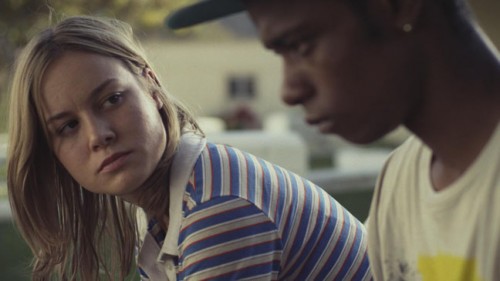Short Term, Long Form, by Rita Cannon
In 2008, Destin Daniel Cretton made a short film called Short Term 12. Its tagline was, “A film about kids. And the grown-ups who hit them.” Cretton has now expanded Short Term 12 into a full-length feature that confronts the effects of child abuse with all the frankness that tagline suggests.
Brie Larson stars as Grace, a young woman who works in a foster care facility for teens alongside her boyfriend Mason (John Gallagher, Jr.). They’re charged with caring for kids who are between foster homes. The youngest are middle-school-aged, while the oldest are approaching their eighteenth birthdays, when they’ll essentially be kicked out of the system and expected to fend for themselves. Most of them are prone to angry, sometimes violent outbursts, and attempts at running away are common enough to merit their own set of bylaws. Surly aspiring rapper Marcus (Keith Stanfield) gets even surlier the closer he gets to aging out of the program. Newest resident Jayden (Kaitlyn Dever) acts tough, but is much more vulnerable than she lets on. We get brief windows into the lives of some of the kids at the facility, as well as the troubled pasts of Grace and Mason, who are both products of the foster care system themselves.
It’s not quite true to say that Short Term 12 has no plot – things definitely happen, and some pretty dramatic things at that. But the film’s greatest accomplishment isn’t the way it strings together events, but the way it slowly reveals and builds the world these characters inhabit, both in a literal and a psychological sense. The plot is secondary, not because its beats aren’t compelling, but because the film’s evocation of its characters’ pasts and possible futures is so effective. Exposition is delivered as much through the characters’ actions and ways of being – an unusual expression when reacting to news, or a curious pause in response to a question – as it is through words. All of these stories started long before we meet the characters, and are nowhere near finished when the movie ends. This isn’t a film about child abuse; it’s a film about what happens when the abuse is over, but the victim’s experience of it is still continuing. It’s about ripple effects and the never-ending process of recovery. Practically speaking, it’s a small movie, closely following a handful of characters over a short expanse of time. But emotionally, it feels epic.
The cast is uniformly excellent, but Brie Larson deserves special mention for her beautifully wrought lead performance. As Grace, Larson is required to shift gears quickly and frequently. She’s a reliable authority figure in the lives of the foster kids, even while her personal life is in a state of upheaval. She plays everything from soft-hearted compassion to righteous rage, all the while making us feel the weight of what Grace has already been through.
Short Term 12 also accomplishes something rare for a movie about young people. There are two scenes in which the foster kids express their feelings through art – Marcus with rap, Jayden with a short story – and they both work really well. These sequences could have easily been sappy or cringe-inducing, but both pieces are perfectly rendered, unpolished enough to seem like the work of actual teenagers, but also teeming with real bitterness, desperation, and fear. When one of these performances spurs Grace to take drastic action of behalf of the kid, you understand why. It’s a perfect example of the raw emotion and attention to detail that make Short Term 12 such a moving, unforgettable experience.




























